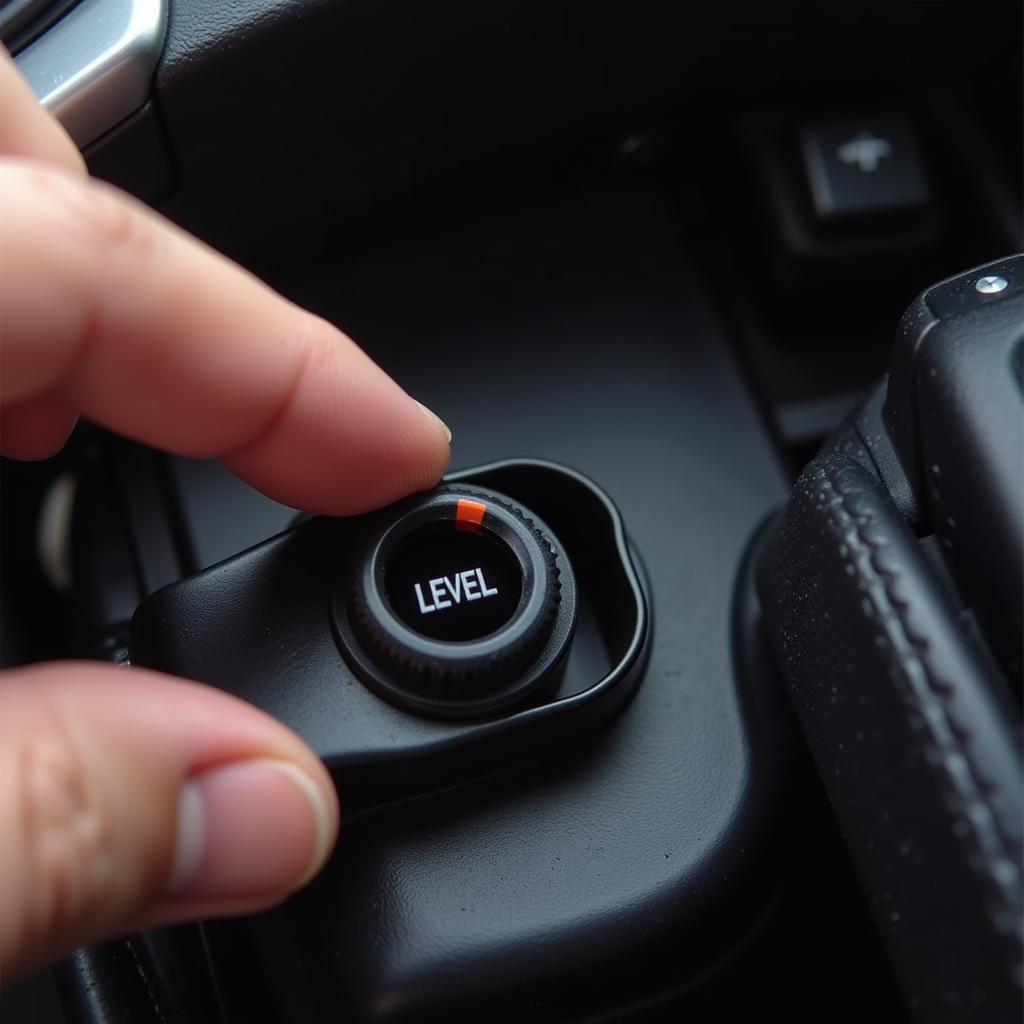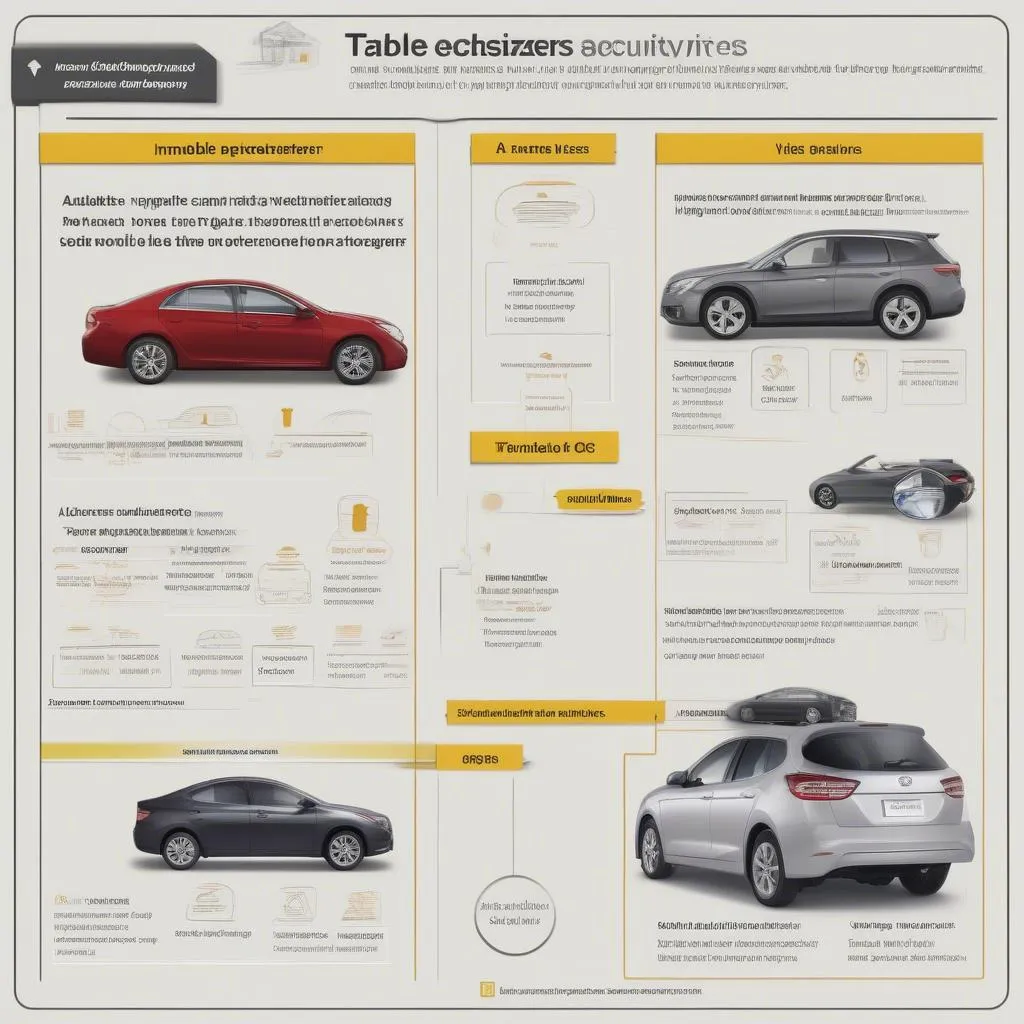The 2019 Volkswagen Tiguan is equipped with a comprehensive suite of advanced safety features, and a common question among owners and potential buyers is whether this popular SUV includes brake warning sensors. The answer is a resounding yes.
Volkswagen understands the crucial role that brakes play in ensuring passenger safety. The 2019 Tiguan is designed with a sophisticated braking system that incorporates several sensors working together to monitor and maintain optimal braking performance.
Understanding Brake Warning Sensors in the 2019 VW Tiguan
The brake warning sensors in your 2019 Tiguan are vital components of the car’s overall safety system. These sensors constantly monitor various aspects of the braking system, providing the driver with timely alerts if any issues are detected. This early warning system can help prevent potential accidents and ensure a safe driving experience.
Here are some of the key sensors and their functions:
-
Brake Pad Wear Sensors: These sensors, often located within the brake pads themselves, monitor the thickness of your brake pads. When the pads wear down to a certain level, the sensor triggers a warning light on your dashboard, signaling it’s time for a brake pad replacement.
-
Anti-Lock Braking System (ABS) Sensors: ABS is a standard feature on the 2019 Tiguan. Wheel speed sensors, located at each wheel, constantly monitor the rotational speed of each wheel. If a wheel locks up during braking, the ABS system automatically modulates brake pressure to prevent skidding and maintain steering control.
-
Electronic Stability Control (ESC) Sensors: The ESC system uses various sensors, including steering angle sensors, wheel speed sensors, and yaw rate sensors, to detect and help correct any loss of vehicle control. If the system senses a potential skid or loss of traction, it can automatically apply brakes to individual wheels and adjust engine power to help the driver maintain control.
-
Brake Fluid Level Sensor: This sensor monitors the brake fluid level in the master cylinder. If the brake fluid level drops below a safe level, often due to a leak in the system, a warning light will illuminate on your dashboard.
Common Brake Warning Signs in Your 2019 VW Tiguan
While the 2019 Tiguan’s advanced sensors are designed to detect and alert you to potential brake problems, it’s important to be aware of other common warning signs:
-
Illuminated Brake Warning Light: The most obvious sign is the illumination of the brake warning light on your dashboard. This could indicate a problem with the brake pads, brake fluid level, or a fault in the ABS or ESC systems.
-
Unusual Noises When Braking: Screeching, grinding, or clicking sounds when you apply the brakes can signal worn brake pads, a problem with the brake calipers, or other issues within the braking system.
-
Vibrations or Pulsations in the Brake Pedal: If you feel pulsations or vibrations through the brake pedal when braking, it could be a sign of warped brake rotors, which may need to be machined or replaced.
-
Spongy or Soft Brake Pedal: A soft or spongy brake pedal can indicate air in the brake lines, which can significantly reduce braking efficiency. This requires immediate attention from a qualified mechanic.
-
Vehicle Pulling to One Side When Braking: If your Tiguan pulls to one side when you apply the brakes, it could indicate uneven brake pad wear, a sticking brake caliper, or a problem with the hydraulic system.
What to Do When You Experience Brake Problems
“If you experience any of these warning signs or suspect a problem with your brakes, it is crucial to address the issue promptly,” advises Mark Hernandez, a seasoned automotive engineer specializing in braking systems. “Ignoring these signs can lead to further damage, costly repairs, and, most importantly, compromise your safety on the road.”
Hernandez further recommends, “Schedule an inspection with a qualified mechanic, preferably one specializing in Volkswagen vehicles, to diagnose the problem accurately.”
Maintaining Your 2019 VW Tiguan’s Brakes
Regular maintenance is essential for the optimal performance and longevity of your Tiguan’s braking system:
-
Adhere to the Manufacturer’s Recommended Maintenance Schedule: Consult your owner’s manual for the recommended brake inspection and service intervals.
-
Brake Fluid Flush: Brake fluid is hygroscopic, meaning it absorbs moisture over time. Have your brake fluid flushed according to the manufacturer’s recommendations to prevent corrosion and maintain optimal braking performance.
-
Inspect Brake Lines and Hoses: Regularly check your brake lines and hoses for any signs of cracks, leaks, or damage. These components are crucial for maintaining hydraulic pressure within the braking system.
 Checking Brake Fluid Level in a 2019 VW Tiguan
Checking Brake Fluid Level in a 2019 VW Tiguan
Conclusion
The 2019 Volkswagen Tiguan is equipped with a sophisticated braking system that prioritizes your safety. Understanding how these systems work and recognizing potential warning signs is crucial for maintaining your vehicle’s safety and preventing costly repairs. By adhering to a regular maintenance schedule and addressing any brake concerns promptly, you can ensure optimal braking performance and enjoy a safe and confident driving experience in your 2019 Tiguan.

